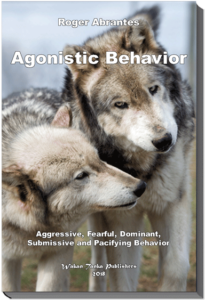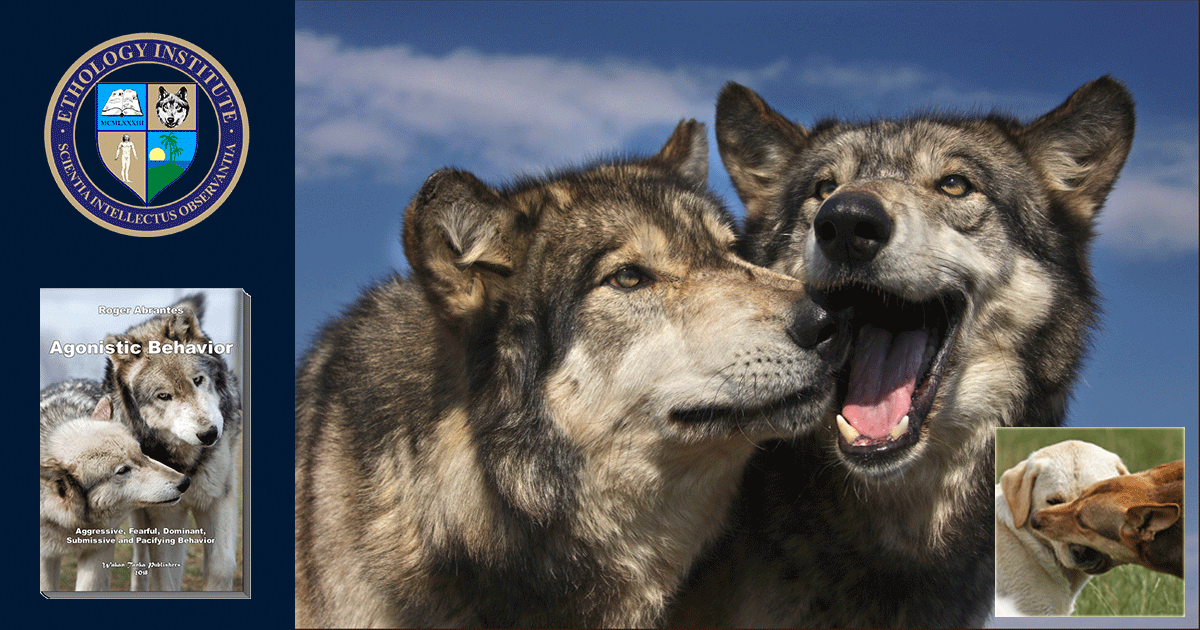Course Description
Agonistic Behavior is all forms of aggression, threat, fear, pacifying behavior, fight or flight, arising from confrontations between individuals of the same species. This course gives you the scientific definitions and facts. More than that, it also gives you a critical review of popular interpretations and misinterpretations of these terms, helping you to evaluate information and develop your scientific views.
Agonistic Behavior is one of our most challenging courses addressed to the genuine student of behavioral sciences. Its subject-matter is essential to understand behavior and behavior modification techniques.
Course Level
Intermediate to Advanced. It is a challenging course which requires an active effort from the student. However, you will feel handsomely rewarded by the knowledge and insight, you will have acquired upon completion.
Course Textbook
“Agonistic Behavior—On Aggressive, Fearful, Dominant, Submissive, and Pacifying Behavior”
by Roger Abrantes, Ph.D. in Evolutionary Biology and Ethology.
In this course, you won’t get the book. Instead, you’ll read texts especially prepared for each lesson.
Course content
Lesson One:
- The Conundrum of the Behavioral Sciences
- Evolutionarily Stable Strategies and Behavior
- Ethogram—Social and Agonistic Behavior
Lesson Two
- Maternal Behavior
- The Origin of Pacifying Behavior
- Pacifying Behaviors
Lesson Three
- Fearful Behavior
- Aggressive Behavior
Lesson Four
- Dominant and Submissive Behavior
- A Critical Analysis of the Concepts of Dominance and Aggression
Lesson Five
- Let Reason Prevail Over Force
All lessons contain numerous references for your further studying.

Supplementary Literature
Although not mandatory, we recommend that you supplement your readings with:
- Darwin, C. (1859) On the origin of species by means of natural selection, or the preservation of favoured races in the struggle for life. London: John Murray. 1st ed.
- Dawkins, R. (2006) The Selfish Gene. Oxford University Press, USA.
- McFarland, D. (1982) The Oxford Companion to Animal Behaviour. Oxford University Press, Oxford.
- McFarland, D. (1998) Animal Behaviour. Benjamin Cummings. 3rd ed.
Online Studying and Tutoring
Read the texts. Join the course forum where you can read our tutors’ answers to questions previously posed by your colleagues. If you have a new question, do not hesitate in posting it.
The course forum is solely for academic questions. For administrative matters or difficulties accessing the functionality of the site, please submit a ticket.
Once you’re ready for it, take the quizzes. You may take a quiz as many times as you like. We recommend you re-take quizzes once a year as a self-imposed quality control.

